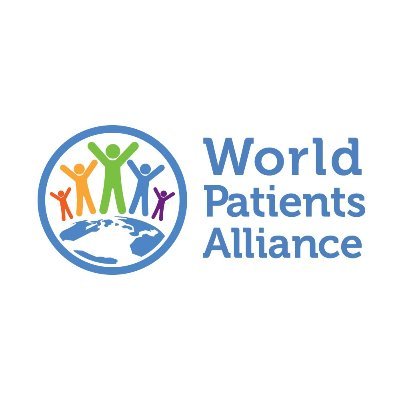Are people with diabetes more likely to get COVID-19?
Currently, there is not enough data to demonstrate whether people with diabetes are more likely to get COVID-19 than the general population. In fact, people with diabetes experience worse outcomes, but do not have a higher chance of contracting the virus. The more health conditions an individual has, the more likely they are of getting serious complications from COVID-19.
What should people with diabetes know and do?
For people living with diabetes, it is important to take the preventive measures to avoid contracting the virus.
- Wash your hands thoroughly and regularly
- Avoid touching your face before you have washed and dried your hands
- Clean and disinfect any objects and surfaces that are touched frequently
- Don’t share food, glasses, towels, tools etc.
- When you cough or sneeze, cover your mouth and nose with a tissue or use the crook of your arm (inner side of the elbow) if you don’t have a tissue to hand
- Try to avoid contact with anyone showing symptoms of respiratory illness such as coughing
- If you are experiencing ill with flu-like symptoms, stay at home.
If you have diabetes:
- Make sure you have all relevant contact details to hand in case you need them.
- Pay extra attention to your glucose control. Regular monitoring can help avoid complications caused by high or low blood glucose levels.
- If you experience any flu-like symptoms (high temperature, cough, difficulty breathing), it is important to consult a healthcare professional.
- Any infection is going to raise your glucose levels and increase your need for fluids, so make sure you can access a sufficient supply of water.
- Make sure you have a good supply of the diabetes medications you need.
- Make sure you have access to adequate and safe food.
- Make sure you will be able to correct for hypoglycemia- sudden drop in blood glucose levels- by having 15-20 grams of fast-acting carbohydrates such as table sugar and honey .
- If you live alone, make sure that someone you can trust and rely on is aware of your diabetes since you may require some assistance if you get ill.
- Keep a regular schedule, avoid long working hours and excessive fatigue and focus on having a good night's sleep.
Healthy nutrition and home-based exercise
Healthy nutrition and regular physical activity is an essential component of diabetes management. Staying active during this period is crucial. Dedicating 30min daily for self-care will boost your immunity, keep you in shape, help regulate your blood glucose levels, and boost your mood. There are many fitness videos available on the internet for all levels. Choose an activity you enjoy and feel comfortable with, such as stretching, home workouts, walking/running in nature, or yoga.
It is also important for people with diabetes to eat a varied and balanced diet to keep their blood glucose levels stable and enhance their immune system. It is recommended to
- Give priority to foods with a low glycemic index (e.g. vegetables, whole wheat pasta/noodles)
- Avoid excessive consumption of fried foods
- Limit consumption of foods high in sugar, carbohydrates, and fat
- Choose lean proteins (such as fish, meat, eggs, milk, and cooked beans)
- Eat green, leafy vegetables
- Consume 2-3 servings of fruits
How DiaLeb helps
Taking into consideration the difficult times that Lebanon is facing as well as the rapid spread of the COVID-19 virus, DiaLeb is working hard to limit the spread of this infection and raise awareness about its health risks. Staff, members, volunteers, and patients are requested to exercise great care and responsibility and to be conscious until this challenging period ends.
Consequently, since the start of the COVID-19 pandemic, DiaLeb has taken multiple preventive measures that would help reduce the spread of the virus and has been trying to improve patients’ physical and psychological well-being. We have also adapted many of our services to support people affected with diabetes with the proper information and connections they need.
Covid-19 Information & Education
1) Engaging in health and safety training for COVID-19.
2) Providing diabetes patients with proper support by ensuring access to resources,medications, and supplies needed.
3) Providing virtual education including virtual patient support sessions for Lebanese living with type 1 diabetes
4) Providing virtual conferences targeting university students which disseminated diabetes facts & special challenges that patients living with diabetes might face during Covid-19.
5) Broadcasting an educational LIVE show on Facebook called “DiaLeb Live” hosted by Dialeb’s President & founder Dr. Maalouf in which many topics concerning diabetes and COVID-19 were discussed with professional guest speakers.
6) Offering expert medical advice by sharing educational content on our social media platforms (offered in English and in Arabic languages)
Vaccines
Covid-19 vaccines are safe and effective. They are continuously monitored by many agencies such as the Center of Disease Control (CDC) and the Food & Drug Administration (FDA). It is rare to experience a serious side effect following the vaccine. Actually, the most common side effects include: pain, redness and swelling (on the arm where you got the shot) as well as tiredness, headache, muscle pain, chills, fever and nausea.
The CDC recommends that all people aged 12 years and older get vaccinated as soon as possible in order to help protect against contracting the virus.
→ What types of vaccines are currently available?
Frequently Asked Questions
Q: Are people with diabetes more likely to get COVID-19?
Similar to any other pre-existing health condition, diabetes might increase the risk of complications. But there is no evidence that shows that people living with diabetes are more likely to contract the virus.
Q: Can COVID-19 cause diabetes?
There is still not enough evidence about whether COVID-19 can cause diabetes or not.
Q: Should I worry about diabetic ketoacidosis?
When patients living with diabetes (mainly type 1) contract a viral infection, they have a higher risk of DKA.
Sources:
American Diabetes Association
International Diabetes Federation
World Health Organization




